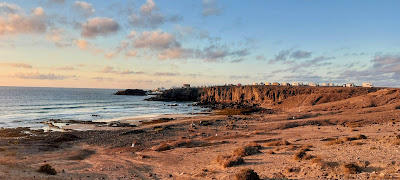Vom S-Bahnhof Bellevue ist es kein weiter Weg zur Spree. Abends liegt der Fluss schwer zwischen den Ufermauern, wie ein technisches Becken.
Die S-Bahn rattert auf dem Stahlbogen über das Wasser, rot-gelbe Waggons ziehen im engen Rhythmus vorbei. Unten gehen zwei Gestalten über den schmalen Steg, geduckt unter der Konstruktion, als gehörten sie nicht zur gleichen Stadt wie die, die oben vorbeifährt. Die Lampen werfen ein gelbes Dreieck ins Schwarz, es schwimmt kurz, verliert die Kontur, verschwindet.
Man geht ein paar Minuten, dann öffnet sich das Ufer. Die alten Steinlaternen stehen da wie Überreste eines Katalogs über gute Regierungsarchitektur, irgendwann zwischen Kaiserzeit und demokratischem Verwaltungswillen abgelegt. Im Licht flirren kleine Insekten, obwohl es Winter ist; vielleicht Dreck, vielleicht Feuchtigkeit. Alles ist möglich in diesem Dämmerlicht.
Das Bundesinnenministerium liegt wie ein gesichertes Rechenzentrum an der Spree. Ein Zaun, Kameras, rote Punkte. Der Staat lebt hier nicht als Idee, sondern als Hochsicherheitsschleuse. Er spricht nicht von Vertrauen. Er spricht von Zugriff. Schilder sagen, wo man gehen darf, wo nicht: Fußgänger frei, steht da.
Ein Satz, der klingt, als könnte er auch widerrufen werden.
Das Spreeufer macht einen Bogen nach rechts. Der Wind presst den Geruch von kaltem Wasser gegen die Häuserkante. Auf der gegenüberliegenden Seite taucht das große, beleuchtete Raster der Neubauten auf. Büros. Ministerien. Alles im gleichen Ton. Wenn man lange genug hinsieht, könnte man meinen, sie seien nicht gebaut, sondern einfach eingeschaltet worden.
Zwischen Moabiter Brücke und dem heutigen Innenministerium lagen früher die Kohlen- und Holzlagerplätze der Moabiter Werften. Hier kamen die Schleppkähne an, hier arbeiteten Bootsbauer, Kutscher, Heizer. Die Wege, auf denen man heute Richtung Reichstagsufer geht, waren damals Arbeitswege von Metallern, Hafenarbeitern und Transportleuten. Von dieser Arbeiterküste ist nichts geblieben, nur die gerade Kante des Ufers — sauber, gespült, historisch stumm.
Von der Turmstraße und der Rathenower Straße kamen einst die Dienstmädchen und Textilarbeiterinnen täglich über die Moabiter Brücke. 1929 drängten sich im Moabiter Gesellschaftshaus mehr als 400 Delegierte zum ersten Reichskongress werktätiger Frauen. Auf dem Uferweg zwischen Bellevue und Kanzleramt keine Spur davon. Als hätte Berlin seine soziale Frage hier nie gestellt.
Keine
fünf Minuten Weg vom Kanzleramt, an der Wilhelmstraße, haben die
europäischen Mächte 1884/85 Afrika unter sich aufgeteilt. Die
Regierungsbauten von heute stehen in Sichtweite dieser Geschichte —
und verhalten sich, als sei das ein fremder Planet. Der Raum bleibt
blank, Absicht oder Routine.
Nur wenige Gehminuten in die andere Richtung, entlang der Heidestraße, entstanden in den frühen 60ern die ersten großen Wohnheime für „Gastarbeiter“. Viele arbeiteten auf Baustellen, bei Siemens oder im Reinigungsgewerbe und kreuzten täglich die Routen der heutigen Touristenströme. In den glänzenden
Fassaden der Berliner Republik spiegelt sich nichts davon — kein Hinweis
auf die Menschen, deren Arbeit die neue Hauptstadt erst möglich
gemacht hat.
Am Futurium steht ein Fahrradkurier, der auf sein Handy starrt. Hinter ihm drückt sich das Gebäude nach außen, als wolle es beweisen, dass Zukunft in Berlin vor allem eines ist: eine Frage der Beleuchtung. Innen die große organische Struktur, glatt, kuratiert. Sorgfältig gesetzt für Menschen, die Zeit haben, darüber nachzudenken, wie alles einmal werden soll. Draußen die, die dafür keine Zeit haben. Innen das Modell der lichten Zukunft. Draußen der Fahrradkurier, der die Gegenwart liefert. Zwei Systeme, die einander nicht berühren.
Weiter vorn spaltet eine Brücke den Himmel. Marie-Elisabeth-Lüders- und Jakob-Kaiser-Haus liegen da wie öffentliche Maschinen aus Glas und Beton. Als hätte jemand die Blaupause einer idealen Parlamentsarchitektur direkt auf die Wasseroberfläche gelegt. Rundbau, gläserne Brücke, überhöhte Treppenläufe — alles geordnet, alles sichtbar, alles angeblich durchschaubar.
Aber Transparenz ist hier ein ästhetisches Konzept, kein politisches. Man darf hineinsehen, ohne zu wissen, was dort wirklich verhandelt wird. Ein Raster aus Licht und Glas, wie ein Versprechen, das nie eingelöst wurde: Transparenz. Was man sieht, sind Etagen, Abläufe, Büroflächen — lauter Räume, in denen Öffentlichkeit verwaltet wird, ohne dass sie entsteht. Das Hauptquartier der Berliner Republik wirkt wie ein Raumschiff, das hier gelandet ist, weil jemand irgendwo beschlossen hat, dass Demokratie künftig am besten klimatisiert funktioniert.
Drüben steht der Reichstag. Er sieht alt aus, obwohl er dauernd erneuert wird. Er leuchtet ein wenig, aber nicht wie früher, als er so getan hat, als wäre er das Zentrum der Republik. Jetzt wirkt er wie ein älteres Ensemblemitglied, das man noch im Stück lässt, obwohl die eigentliche Handlung längst woanders stattfindet. Die Kuppel glimmt wie ein Nachtlicht für eine Republik, die sich fürchtet, im Dunkeln zu stolpern.
Ein Ausflugsschiff fährt vorbei, langsam, wie ein Warmhaltewagen für touristische Stimmungen. Drinnen sitzen Menschen, die die Stadt womöglich nie ohne Glas zwischen sich und den Dingen sehen. Das Boot zieht eine Linie Licht hinter sich her. Unterhalb der Treppe stehen die weißen Kreuze im Dunkeln. Man weiß, wofür sie stehen, und gleichzeitig weiß man, dass sie hier fast niemandem auffallen. Sie wirken seltsam verloren, als hätte man sie zum Trocknen an die Ufermauer gehängt.
Der Weg führt weiter unter den großen Platten der Parlamentsarchitektur entlang. Der Beton hängt schwer über dem Wasser. Ein paar Stufen, dann wieder eine Kurve. Unten läuft man wie in einem Wartungsschacht einer viel größeren Infrastruktur.
Kurz bevor man die Friedrichstraße erreicht, löst sich der Weg aus dem System der Regierungsbauten. Die Häuser stehen enger, das Licht wird ungleichmäßiger. Auf der Brücke stauen sich Autos. Man hört Schritte, manchmal eine Stimme, die kurz etwas sagt und dann sofort wieder im Wind verschwindet. Die Stadt schweigt nicht, aber sie spricht auch nicht. Sie ist mit sich beschäftigt.
Der
Spaziergang endet ohne Pointe.
Berlin erklärt nichts.
Es
zeigt.
Und manchmal zeigt es vor allem das, was es lieber verschweigen würde.


















.jpg)








